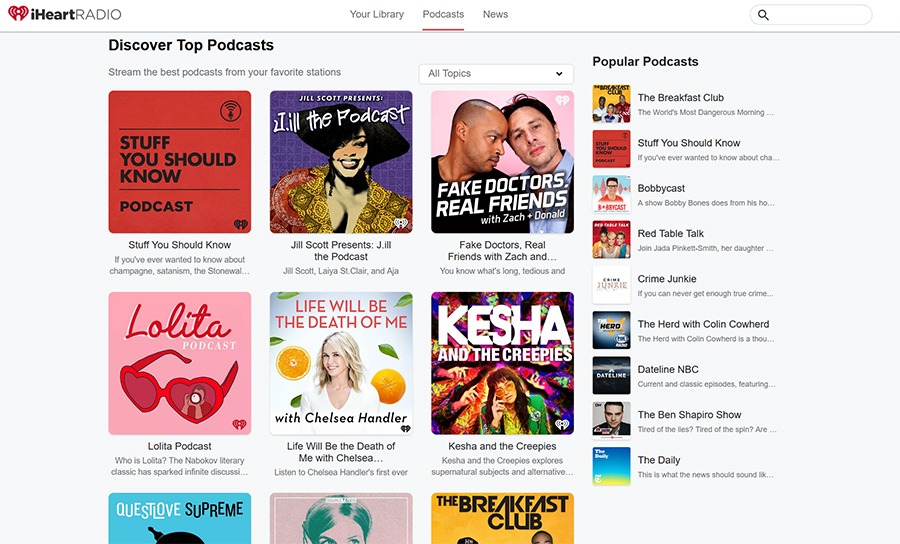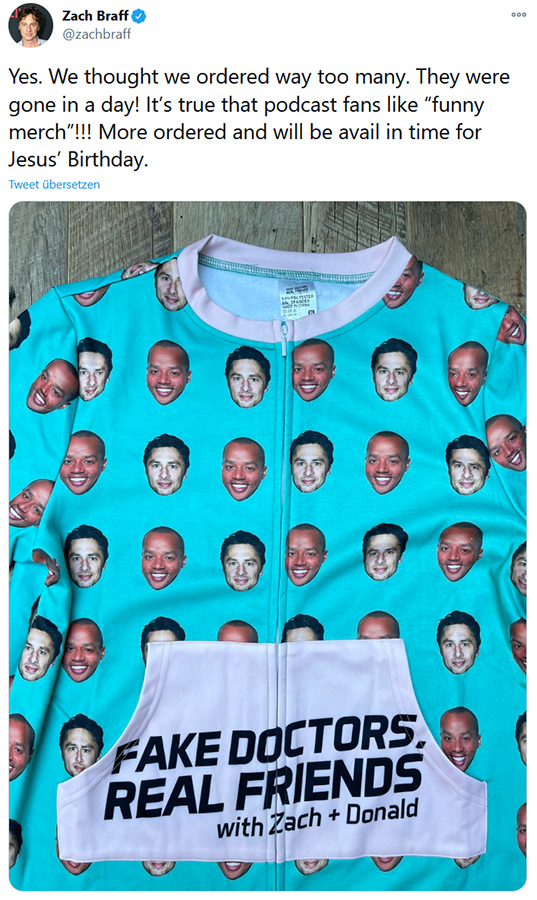Less professional is more professional

ChatGPT was used in parts for the translation of this article from German to English.
“Fake Doctors Real Friends” is a podcast hosted by the former actors of the comedy series Scrubs and, for me, it embodies the contrast between “old” and “new” media. But first, an explanation:
The podcast, hosted by Zach Braff and Donald Faison, takes on the task of discussing the series chronologically (one episode at a time) and sharing background information, anecdotes, and anything else that comes to their minds about the production. In addition, they feature guests from the show’s cast, directors, writers, and answer listener questions at the end of each episode. The podcast is produced by iHeartRadio, which is both a platform for podcasts and a production company.

According to Zach and Donald, the idea for the podcast came to be before they partnered with iHeartRadio, and it only became possible through an offer from them. That way of thinking, feels like a clear sign that both of them came up in the traditional Hollywood business, where if you have an idea, you find someone who can make it happen. Often for good reasons, as a single screenwriter usually can’t financially support an entire film production. Now, the same principle is being applied to the podcast industry. Is this a form of professionalization of the podcast business? Or simply an attempt to transfer an old system to a “new” medium? Podcasts, by their nature, are quite decentralized and free media—anyone can host one, and there isn’t a monopolistic platform where you must be on in order to become a relevant podcast (yet). Almost anyone can start a podcast, and almost everyone does. This ensures the diversity of the industry at the moment. It is accessible and free from conventions.
The response to the podcast has been very positive and, according to them, significantly more successful than they had anticipated. As a result, there are now efforts to create merchandise and a near-guarantee that they will “podcast” the entire series.

“Fake Doctors Real Friends” also highlights the differences between “old” and “new” media in its content. The podcast is relatively unstructured, with Zach and Donald simply talking about whatever comes to their minds, which is clearly a new experience for them. In Hollywood, everything is meticulously planned, and television productions allow little room for spontaneity. Think of late-night shows that imitate spontaneous conversation to ensure predictable airtimes and quality. In many podcasts, this would be unimaginable—partly because podcasts can have a very long runtime (consider The Joe Rogan Experience, likely the most successful podcast in the world, with a minimum runtime of around two hours), and partly because many podcasts focus on natural conversation.
Now, listeners can witness two Hollywood actors as they slowly discover the spontaneous, casual side of the “new” entertainment industry. Nothing has stopped them from turning the audience they reached with Scrubs into an audience for their own personal projects. For many in “traditional” media, Twitter is often the first step in this direction, though as a microblogging platform, it doesn’t allow for large-scale projects. This may obscure the true potential of internet community-based productions. To fully appreciate this potential, one must first engage with platforms like YouTube, podcasts, or other typical internet media. Once the potential is recognized, the final hurdle is simply the “outdated” mindset of how media should be produced. A production company and a professional team are no longer a necessity—initiative is the key.
Ultimately, I see the blend of “traditional” media creators and internet media creators as an enrichment for the podcast scene, although one must be cautious that the bad habits of the “old” media industry don’t restrict a very free medium and lead to homogenization. This could harm the wonderful diversity of the podcast world—turning the saying “There’s a podcast for everything” into “This podcast can’t survive on our algorithm-based platform with this content.” And in that case, I’ll gladly take the first option.